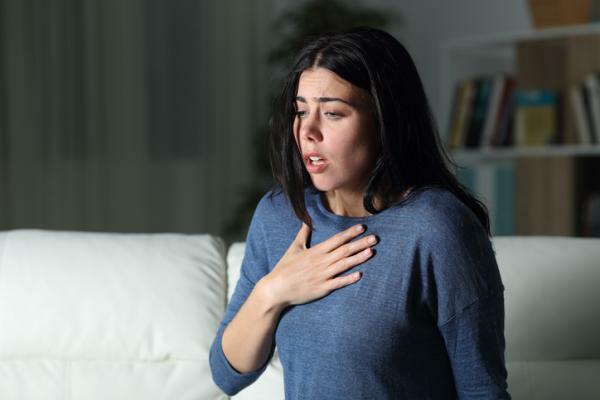
Hey! Shall we have some beers this afternoon? Shall we go for tapas or round, do you feel like it? Who hasn't asked or answered these questions before. And even on some occasions the typical "we go out to have a few beers" that ends up becoming "I've even drunk the water in the vases". And so far everything seems normal.
Most of us have been in these situations at some time, and we will continue to do so without This is a problem, but what happens when alcohol consumption goes beyond the social and occasional? What happens when the frequency and magnitude of what we drink exceeds the limits? And above all, what are these limits? If you do not want to develop chronic alcoholism behaviors, if you would like to know how to detect and treat it, keep reading! In this Psychology-Online article we will talk about the Chronic alcoholism: what is it, symptoms, causes and treatment.
Index
- What is chronic alcoholism
- Symptoms of chronic alcoholism
- Causes of chronic alcoholism
- Consequences of chronic alcoholism
- Treatment of chronic alcoholism
What is chronic alcoholism.
A disease caused by a excessive and prolonged consumption of alcoholic beverages that causes a state of psychic and physical dependence on alcohol. The individual loses the ability to abstain or stop drinking, despite being aware of the damage it causes, and suffers physical or psychological symptoms of withdrawal when he stops drinking.
Symptoms of chronic alcoholism.
In Diagnostic and Statistical Manual of Mental Disorders (DSM)[1], alcohol dependence is defined as a maladaptive pattern of alcohol use leading to clinically significant discomfort or impairment, for at least a 12-month period. In addition, it states that the symptoms associated with chronic alcoholism are:
- Tolerance.
- Abstinence syndrome.
- Increased frequency, in larger quantities and for longer periods of time than initially intended
- persistent desire or unsuccessful efforts to control or stop drinking.
- A great deal of time is spent in activities related to obtaining or consuming alcohol, or recovering from its effects
- It is consumed despite having awareness of physical or psychological problems persistent or recurrent symptoms caused or exacerbated by alcohol use
Chronic alcoholism can occur with or without physiological dependence depending on whether it is with or without signs of tolerance or withdrawal. What's more, the course of alcohol dependence can be of different types:
- Early complete remission.
- Early partial remission.
- Sustained full remission.
- Sustained partial remission.
- On agonist therapy.
- In a controlled environment.

Causes of chronic alcoholism.
The etiological factors that lead to a pattern of chronic alcohol use are both biological and social. On the one hand, genetics, as well as personality and psychological traits of the individual, intervene in determining the pattern of consumption, as well as the temperament and stressors, both internal and external, experienced by the person in question.
On the other hand, taking into account that we are social series that live in society, it is natural that there is influence from external factors such as profession, advertising and other cross-cultural factors. For this last factor, we must remember and take into account that alcohol has a historical consumption throughout the planet from the Paleolithic to the present, and is present in all cultures.
Consequences of chronic alcoholism.
Alcohol consumption ranks third among risk factors for the global burden of disease. In addition, it is the first risk factor in the Western Pacific and the Americas, and the second in Europe. Chronic alcoholism is associated with many serious social and developmental problems, including violence, neglect, abuse, and absenteeism from work.
Specifically, the harmful consumption of alcoholic beverages causes, approximately, 2.5 million deaths a year. Of these, 320,000 young people between 15 and 29 years of age die from causes related to alcohol consumption, which represents 9% of deaths in this age group.
What are the effects of chronic alcoholism?
Alcohol consumption can produce other substance-induced disorders, such as intoxications, which cause physical and psychological symptoms in the individual. Next, we show you what alcohol-induced disorders are:
- Delirium.
- Dementia.
- Amnestic disorder or Korsakoff syndrome.
- Wernicke's encephalopathy.
- psychotic disorder, hallucinosis or even jealousy.
- mood disorder
- Anxiety disorders.
- sexual dysfunction.
- Sleep disorders.
Pharmacokinetic consequences of chronic alcoholism
Alcohol consumption, despite being related to some psychological or more social disorders, also has physical and pharmacokinetic effects. Some of the pharmacokinetic consequences of alcohol consumption are:
- hepatic induction: causing an increase in the efficacy of MEOS (microsomal enzyme oxidative system), which leads to cross-tolerance with barbiturates.
- The increase in the reduced fraction (NADH): in relation to vitamin B6 deficits, which causes a decrease in oxidative capacity, causing the accumulation of organic fatty acids that remain unoxidized, known as fatty liver, and liver hypertrophy due to oxidative overload and enzyme induction, known as hepatomegaly or inflamed liver.
Physiological disorders induced by chronic alcoholism
Some of the physical effects or medical disorders that can arise due to chronic alcoholism are:
- Altered physical appearance.
- digestive disorders: parotid hypertrophy, esogaphitis, gastritis, gastrointestinal cancer, pancreatitis, malabsorption, hepatitis, cirrhosis, etc.
- cardiovascular disorders: hypertension, arrhythmias, cardiomyopathy, strokes.
- Hematologic disorders: anemia, neutropenia, thrombocytopemia.
- Musculoskeletal disorders: myopathies, myalgias, osteoporosis.
- metabolic disorders: hypoglycaemia, avitaminosis, hypomagnesia, hypocalcaemia, hypokalaemia.
- Immune disorders such as immunosuppression.
- Neurological disorders: such as the already mentioned Wernicke or Korsakoff syndrome, amblyopathy, peripheral neuropathies, etc.
- If you are pregnant and drink alcohol, the future baby could have the fetal alcohol syndrome.

Treatment of chronic alcoholism.
Due to the withdrawal syndrome and the possible appearance of delirium tremens, as a consequence of the deprivation of alcoholic beverages, whenever one intends to stop consuming alcohol due to chronic consumption or abuse, it is better do it under medical supervision. Some pharmacological treatments for chronic alcoholism are:
- Disulfiram: as a dissuasive pharmacological treatment.
- Naltrexone, bupropion: as a substitute treatment for alcohol.
- Varenicline: Partial agonist of the nicotinic receptor for anti-addiction, although it is a drug that is under surveillance for suicide risk.
- Benzodiazepine: as palliative treatment
- Acamprosat and SSRIs They have also been used on occasion, but they are also under pharmacovigilance for suicide risk.
In addition to treating the symptoms that produce withdrawal, it is important to treat, if any, those disorders and psychological illnesses that may have arisen as a consequence of the consumption of alcohol. To do this, therapy based on cognitive-behavioral current It has been the one that has shown the greatest efficacy.
In these cases of consumption, it will be important to let the patient know that relapse in long processes is practically inevitable, so it is important to empower him to start over in those cases and avoid emotions associated with failure.
Home remedies for chronic alcoholism
There are natural treatments to treat chronic alcoholism. Let's see the most outstanding:
- Increase the consumption of B vitamins.
- Gradually reduce alcohol consumption.
- Drink a lot of water.
This article is merely informative, in Psychology-Online we do not have the power to make a diagnosis or recommend a treatment. We invite you to go to a psychologist to treat your particular case.
If you want to read more articles similar to Chronic alcoholism: what it is, symptoms, causes and treatment, we recommend that you enter our category of Clinical psychology.
References
- American psychiatric association, (2014). Diagnostic and Statistical Manual of Mental Disorders DSM – 5. Madrid Spain. Pan American Medical Publishing.
Bibliography
- Belloch, A., Sandin, B., Ramos, F., (2009). Manual of psychopathology, volume II. Madrid. McGraw Hill / Interamericana de España, S.A.U.
Chronic alcoholism: what it is, symptoms, causes and treatment


